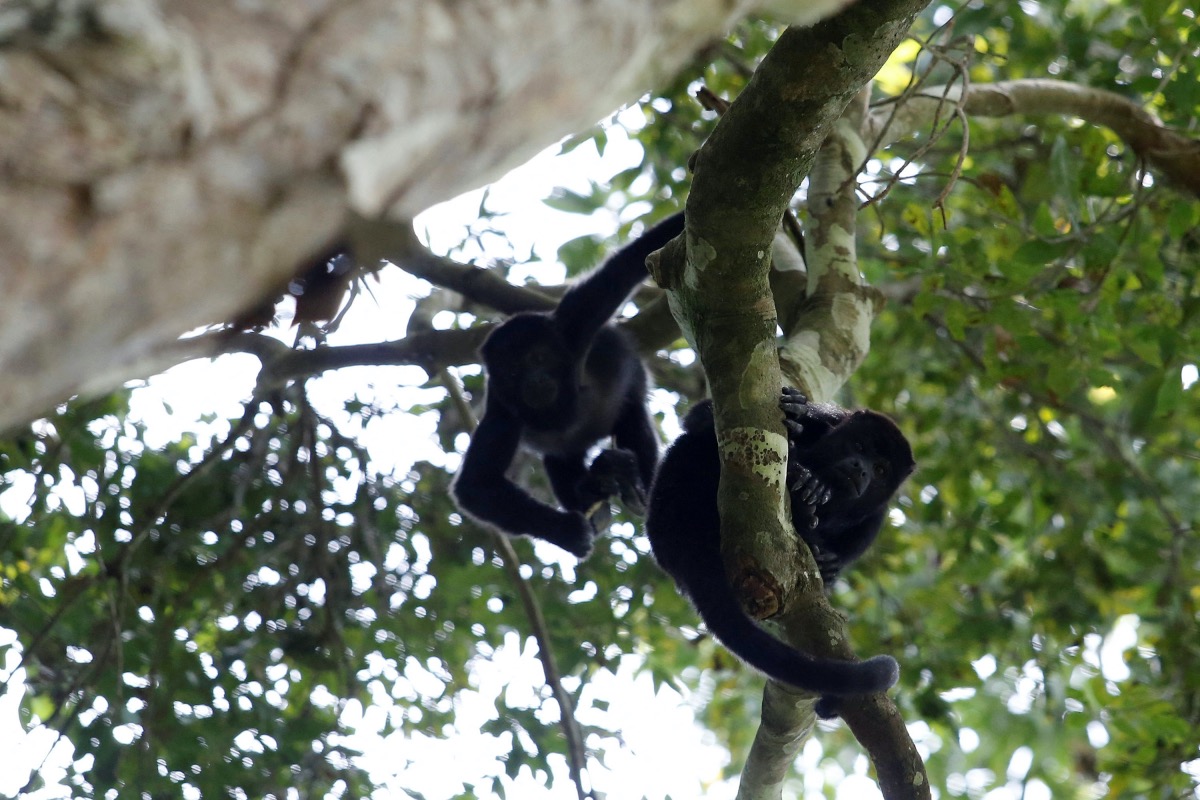Mexico City
Reuters
A US environmental group said on Wednesday it had filed a complaint to Mexican state prosecutors, arguing that toothless regulation was allowing illegal wildlife trafficking to threaten species in one of the world’s most biodiverse countries.
“Wildlife trafficking in Mexico is out of control,” the Arizona-based Center for Biological Diversity said in a report pointing to lax penalties, lack of political will and unregulated markets, despite laws prohibiting the trade of protected species.

Howler monkeys are seen in a tree at the Calakmul Biosphere Reserve in Campeche on 12th July, 2014. PICTUREE: Reuters/Bernardo Montoya/File photo.
Although they are protected by law, animals such as toucans, monkeys, bears and jaguars are openly and increasingly sold on platforms including Meta Platforms Inc’s Facebook and Instagram and Chinese firm ByteDance’s TikTok, the report found.
A Meta spokesperson told Reuters that company policies prohibited the sale of endangered animals and it removed infringing content or accounts as it detected them, in collaboration with national organizations and user reports.
Neither Mexico’s environmental ministry nor Byte Dance immediately responded to requests for comment.
Researchers who scoured social networks, visited local markets and interviewed experts and officials said propagation of false online profiles made the trade harder for authorities to regulate.
Mexico is one of the world’s few “megadiverse” countries, housing some 10 to 12 per cent of the world’s known species. But according to the study, illegal trafficking is having an irreversible impact on the country’s ecosystems.
The populations of native species such as the totoaba, vaquita marina, howler monkey, scarlet macaw and the sea cucumber have plunged in recent years due to demand from China alongside the involvement of organised crime in the business, worth an estimated $US100 billion annually.
Howler monkeys are sold as exotic pets, while vaquitas, the world’s smallest porpoises, are among the planet’s most endangered mammals as they are often trapped in nets of fishers looking for totoabas, whose swim bladders are used in traditional Chinese medicine.
We rely on our readers to fund Sight's work - become a financial supporter today!
For more information, head to our Subscriber's page.
The report said a Mexican special prosecutor’s office had tackled internet wildlife trafficking until the start of 2019, but the office was shut to save money under the administration of President Andres Manuel Lopez Obrador.
“Budget cuts to the environmental agency responsible for verifying, monitoring and inspecting the sale of wildlife in Mexico have allowed the problem to continue to grow,” it said.






